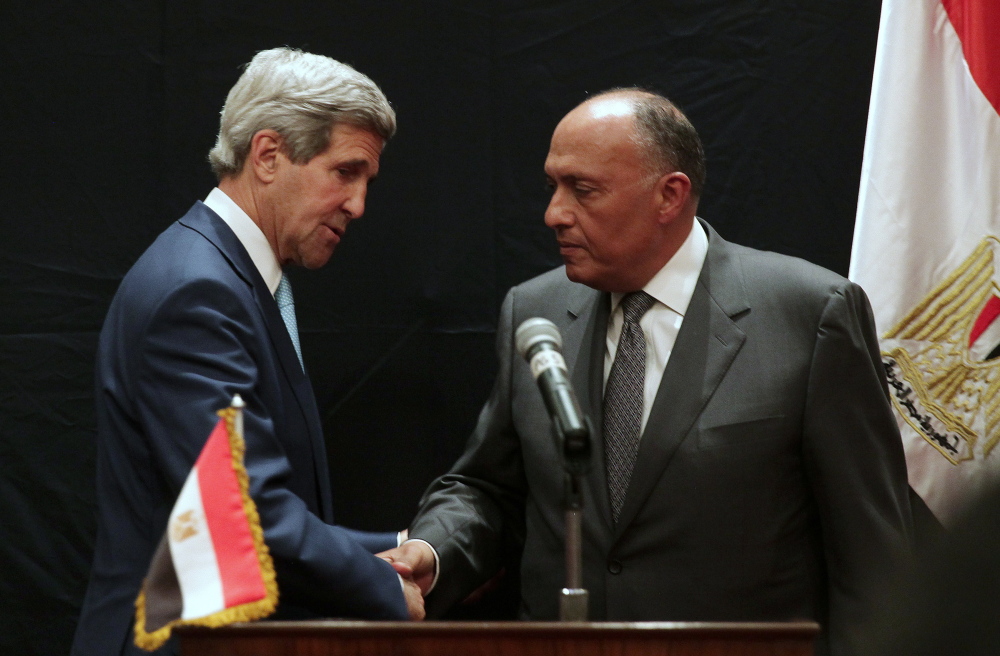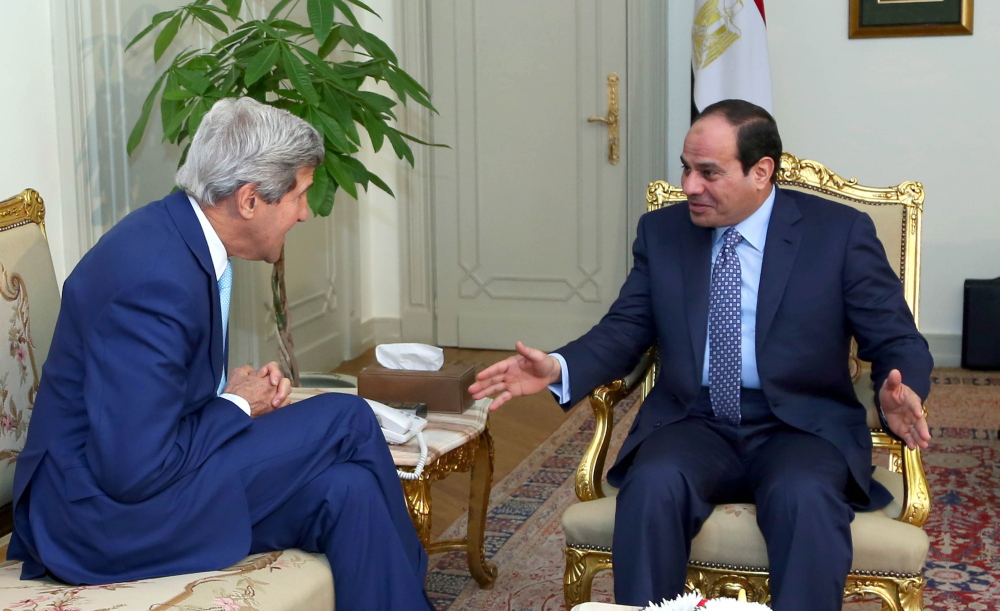CAIRO — The Obama administration implicitly endorsed Egypt’s new military-backed government Sunday with a visit from Secretary of State John Kerry, sealing the repair of a crucial Mideast bond and a return of American partnership with Egyptian authoritarianism after the tumult of the Arab Spring.
The United States has recently closed ranks with Egypt’s authorities. All but about $78 million of suspended U.S. aid has been restored, despite concerns about mass death sentences for Muslim Brotherhood and other political opponents, the jailing of journalists and the narrowing of free speech under the military-backed leadership that assumed power after a July coup.
Kerry was the highest-ranking U.S. official to meet with President Abdel-Fattah el-Sissi, the former army chief who easily won election in May. Although he represents a return to elected rule, as the United States had urged, his military ties and crackdown on opponents and others undercut his democratic credentials.
Kerry was urging el-Sissi and Foreign Minister Sameh Hassan Shoukry to rein in judicial and free speech abuses, U.S. officials said. Kerry met with a representative of an election monitoring group, advocates for women’s rights and mild critics of the government.
The group contained none of the fiercest critics or prominent organizations pushing for legal and human rights protections in Egypt, as well as prisoner rights.
Egypt faces simultaneous economic and security crises, with a limping economy, sluggish tourism, high unemployment and the spread of militancy in the Sinai Peninsula, which is flush with heavy weaponry smuggled easily from Libya.
Kerry was arguing that a more politically inclusive and predictable government will stabilize Egypt, soothe international investment fears and attract vital tourism.
Earlier this month, President Obama called el-Sissi to congratulate him on his election, signaling an end to a period of estrangement and frustration on both sides that dated to the 2011 ouster of autocrat Hosni Mubarak, and the political confusion and dysfunction of the Islamist-backed government that followed.
The army ousted President Mohammed Morsi in a coup in July, and the former Muslim Brotherhood leader remains jailed and largely incommunicado.
Hundreds have died in street protests and other violence related to the upheaval.
Analysts and opponents of el-Sissi contend that his government is throttling opposition even more harshly than Mubarak, who had held power for decades, did. The Muslim Brotherhood political movement was banned under Mubarak and is now banned again.
The United States, although never an ally of the movement, is pushing el-Sissi to ease up on what is widely seen as an attempt to extinguish the group as a meaningful political force.
“We have lots of concerns about a range of issues that are related to the political environment, such as the demonstrations law, the imprisonment of journalists and secular activists, the lack of space in general for dissent, the mass trials and death sentences,” said a senior State Department official traveling with Kerry.
Copy the Story LinkSend questions/comments to the editors.




Success. Please wait for the page to reload. If the page does not reload within 5 seconds, please refresh the page.
Enter your email and password to access comments.
Hi, to comment on stories you must . This profile is in addition to your subscription and website login.
Already have a commenting profile? .
Invalid username/password.
Please check your email to confirm and complete your registration.
Only subscribers are eligible to post comments. Please subscribe or login first for digital access. Here’s why.
Use the form below to reset your password. When you've submitted your account email, we will send an email with a reset code.